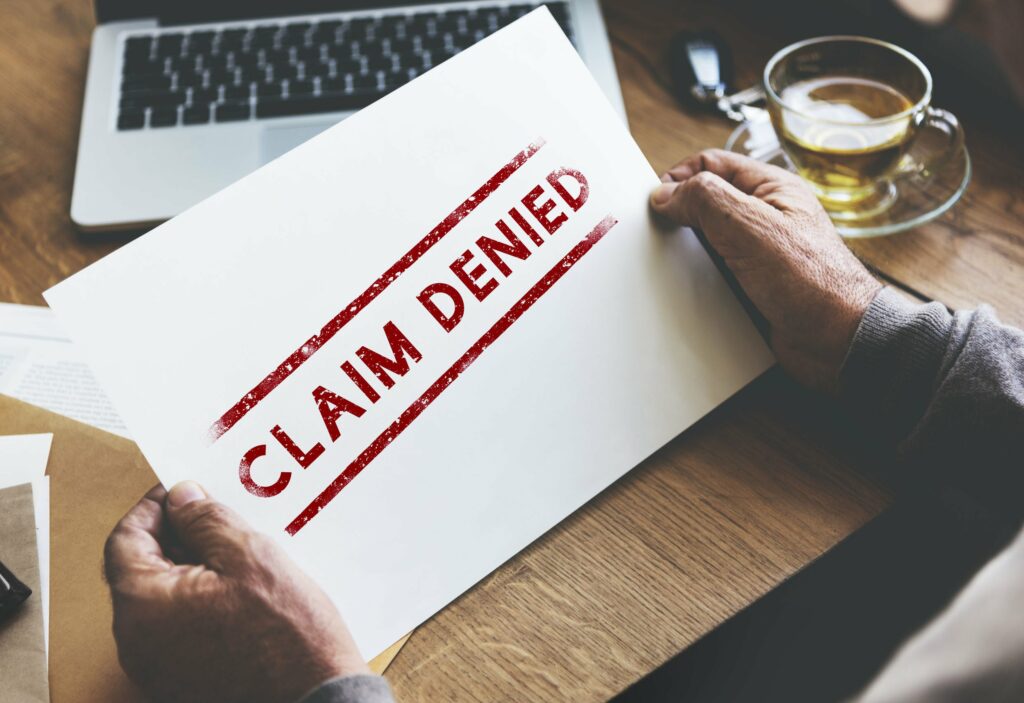
As an insurance policyholder, you pay your premium with the understanding that should disaster strike, your insurance company will cover the damages. That they will act in good faith.
However, it’s important to remember that it’s in your insurer’s best financial interest not to pay out your claim. Sometimes, insurance companies will push the envelope to see if it’s possible to get away with not investigating claims or not paying out money owed. This is known as acting in bad faith.
What can you do if your insurer abandons you in your time of need? It may be possible to file a bad faith insurance lawsuit against them. Below, we’re going to detail the elements of a bad faith insurance claim so you can understand what it takes to prove your case and get the compensation you deserve.
Types of Bad Faith Insurance Claims in Florida
There are two types of bad faith insurance claims, first-party and third-party.
A first-party claim occurs when an insurance company unreasonably refuses to investigate or pay a claim. For example, if your homeowner’s insurance refuses to pay for storm damages to your roof even though you are covered, this would be a first-party claim.
A third-party claim occurs when an insurance policy refuses to defend, settle, indemnify, or investigate a claim for a different party, such as when the policyholder (first party) buys insurance to protect against claims from another (third party). For example, if you are the victim of medical malpractice and your physician’s malpractice insurance unreasonably refuses to pay out the claim, this would be a third-party claim.
How Florida Defines Statutory vs. Common-Law Claims
Insurance companies are obligated by both common law and statute to treat policyholders and claimants fairly. Common law is based on judicial precedent, which has been developed using prior cases in the court system. Statutes are laws put into place by lawmakers.
In Florida, first-party bad faith insurance claims cannot be made under common law, so all first-party claims are made under statutory laws.
Third-party bad faith insurance claims can be made under either common law or statutory laws, but the majority are made under statutory laws, because Florida’s bad faith insurance laws are far clearer than the general guidelines laid out by common law.
We will therefore focus on the elements of a statutory bad faith insurance claim.
Elements of a Statutory Claim in Florida
Florida law very clearly lays out the duties that insurance companies owe the insured, and what constitutes bad faith on the part of insurers.
Under Florida’s Unfair Insurance Trade Practices Act, the following would constitute bad faith on the part of an insurance company:
- Attempting to settle a claim based on an application that has been altered in some way without the knowledge of the insured.
- Making a material misrepresentation of fact to the insured with the intent of effecting a less favorable settlement.
- Failing to investigate claims in an appropriate and timely manner, or denying a claim without appropriate investigation.
- Failing to communicate with the insured in a timely manner.
- Failing to pay out a claim in a timely manner.
- Failing to notify the insured of additional information needed for the investigation, or to explain why such information is needed.
- Failing to offer a reasonable written explanation of why a claim has been denied or not paid out in full.

If you feel that your insurance company is acting in bad faith, you are not powerless. You can fight back against these unfair practices by filing a bad faith insurance claim lawsuit.
An experienced Florida insurance injury lawyer can help you determine whether you can make a valid case for bad faith insurance, and will advocate for you to get the compensation you deserve in your time of need.
About the Author:
Fort Lauderdale FL Accident Attorney: Since 1995, Mr. Lawlor’s trial advocacy and litigation skills, as well as his wide-ranging legal expertise, have provided plaintiffs and their families with a distinct advantage when seeking financial compensation and justice for injuries caused by the negligence of others. Mr. Lawlor is an EAGLE member of the Florida Bar Association and an active member of the American Association for Justice, the Broward County Justice Association, the American Civil Liberties Union (ACLU), and several professional associations.
